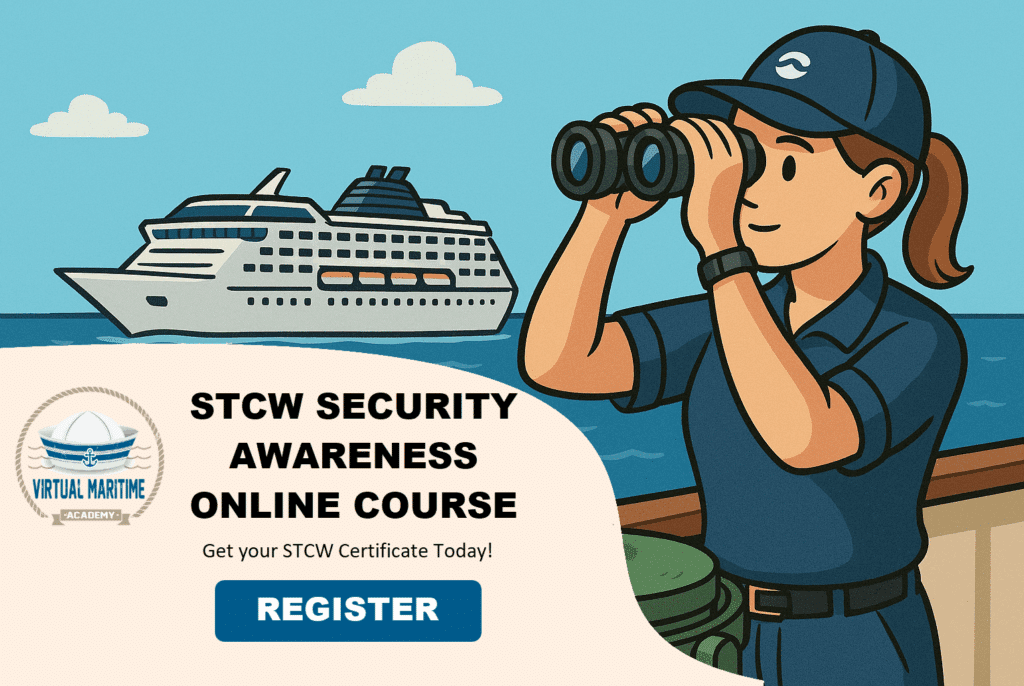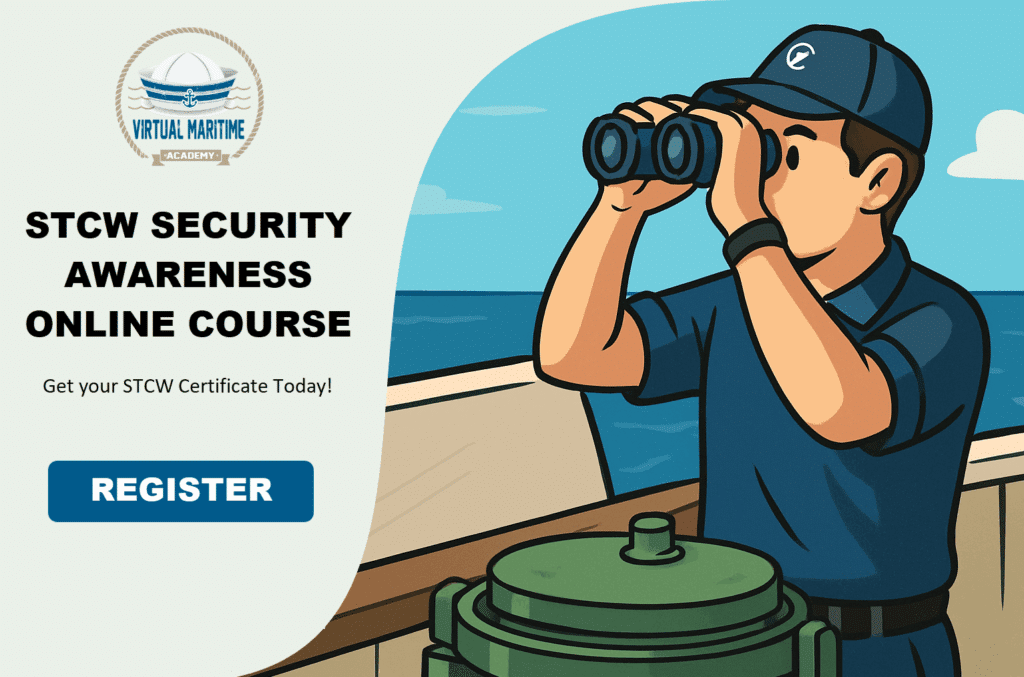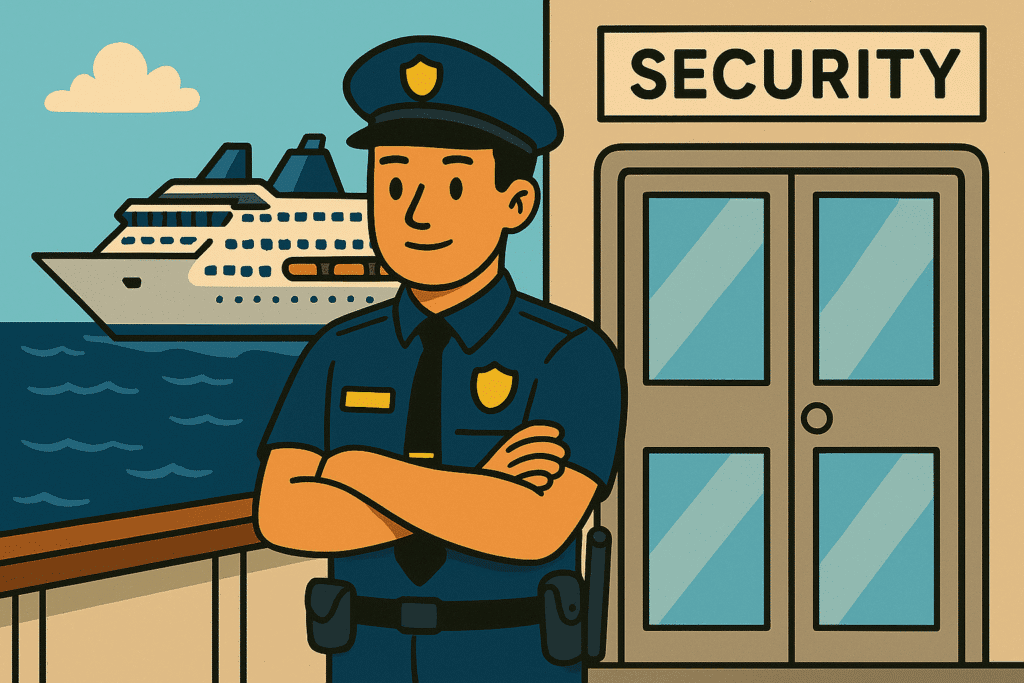In the intricate and often bustling environment of a cruise ship, security is a paramount concern that extends across all levels and departments. This article delves into the critical concept of Cross-department Security Awareness and how it empowers all cruise crew members to bolster the ship security plan. With the rise of global tourism and an increasing number of incidents at sea, ensuring a comprehensive understanding of security responsibilities is essential. This guide will explore the importance of a unified security approach, clearly define the roles and responsibilities of different departments, provide training and best practices for crew members, and outline how to foster a vibrant culture of security awareness on board. By embracing these principles, every crew member can contribute significantly to the overall safety and security of the ship and its passengers.
Learn More About our PSA Online Course Here!
Key Takeaways
- A unified security approach is essential for effective ship security.
- Each department plays a vital role in supporting the ship’s security plan.
- Regular training and adherence to best practices enhance crew preparedness.
- Fostering a culture of security awareness keeps all crew members vigilant.
- Collaboration across departments leads to a safer cruise environment.
The Importance of a Unified Security Approach
In the maritime industry, a unified security approach is paramount, particularly on cruise ships where the safety and security of passengers and crew are intertwined. Cross-department Security Awareness empowers all cruise crew members, regardless of their specific roles, to contribute significantly to the overall ship security plan. Training programs like the Proficiency in Security Awareness (PSA) and Vessel Personnel Without Security Responsibilities (VPWOSR) courses emphasize this importance by equipping seafarers with the necessary skills to identify potential security threats and effectively respond to them. For instance, during their daily operations—whether in hospitality, engineering, or entertainment—crew members are trained to recognize suspicious behaviors, report anomalies, and adhere to established security protocols. This collaborative effort ensures that every department plays an active role in promoting a secure environment. Ultimately, enhancing seafarer security awareness fosters a culture of vigilance, where each crew member understands their contribution to the collective safety net aboard the vessel.
Roles and Responsibilities of Different Departments
In the dynamic environment of cruise ships, cross-department security awareness is essential for bolstering the overall effectiveness of the ship security plan. Each department, from housekeeping to catering, from deck to engine room, plays a crucial role in maintaining a secure vessel. For instance, crew members in hospitality can easily identify unauthorized individuals entering guest areas, while the engineering department can monitor unusual behavior near critical machinery. By understanding the fundamental principles of security awareness, including recognizing suspicious activities and knowing how to report them, all seafarers contribute to a safer onboard experience. Training programs like the Proficiency in Security Awareness (PSA) and Vessel Personnel Without Security Responsibilities (VPWOSR) courses equip crew members with the knowledge and skills needed to execute their roles effectively. Emphasizing the indispensable nature of team effort across departments will not only improve the cruise ship security training but will also cultivate a proactive safety culture, ensuring every crew member feels empowered and responsible for ship security.
Learn More About our PSA Online Course Here!
Training and Best Practices for Crew Members
In the realm of cruise ship operations, where passenger safety is paramount, cross-department security awareness plays a crucial role in supporting the ship security plan. For all crew members, understanding their responsibilities under the Proficiency in Security Awareness (PSA) and the Vessel Personnel Without Security Responsibilities (VPWOSR) is not just a regulatory requirement but an essential aspect of their daily duties. Crew members across departments must engage in ongoing cruise ship security training that emphasizes the importance of vigilance, communication, and teamwork. Effective security practices, such as reporting suspicious behavior, participating in drills, and understanding access control measures, are vital components in safeguarding the vessel and its passengers. By fostering a culture of security awareness, every seafarer can contribute to a safer environment, ensuring that all personnel, regardless of their role, are equipped with the knowledge to recognize potential threats and respond appropriately. Through comprehensive training, crew members will become an integrated part of the ship’s security strategy, ultimately enhancing everyone’s safety experience on board.
Creating a Culture of Security Awareness on Board
Creating a culture of security awareness on board is essential for maintaining a safe and secure environment for all passengers and crew members. Understanding the principles of Cross-department Security Awareness allows all cruise ship staff—regardless of their specific roles—to contribute effectively to the ship’s security plan. By completing the PSA/VPWOSR course, crew members become acquainted with the critical aspects of security procedures and protocols that pertain to their onboard responsibilities. This training is particularly beneficial for those categorized as Vessel Personnel Without Security Responsibilities (VPWOSR) who may not directly engage with security tasks but still play a pivotal role in recognizing and reporting suspicious activities. By fostering open communication and collaboration among departments, cruise line professionals can enhance their situational awareness and create a robust system of checks and balances. This proactive approach to seafarer security awareness helps to mitigate risks, ensuring that all crew members share a collective responsibility for safeguarding the vessel and enhancing the overall security culture aboard cruise ships.
À Propos de Nous
Virtual Maritime Academy is a global leader in online maritime education and training, offering courses designed to meet the evolving needs of the shipping industry. As a DNV Certified Maritime Training Provider with CPD, we deliver cutting-edge programs that prepare seafarers and maritime professionals for today’s and tomorrow’s challenges. 🌊⚓












